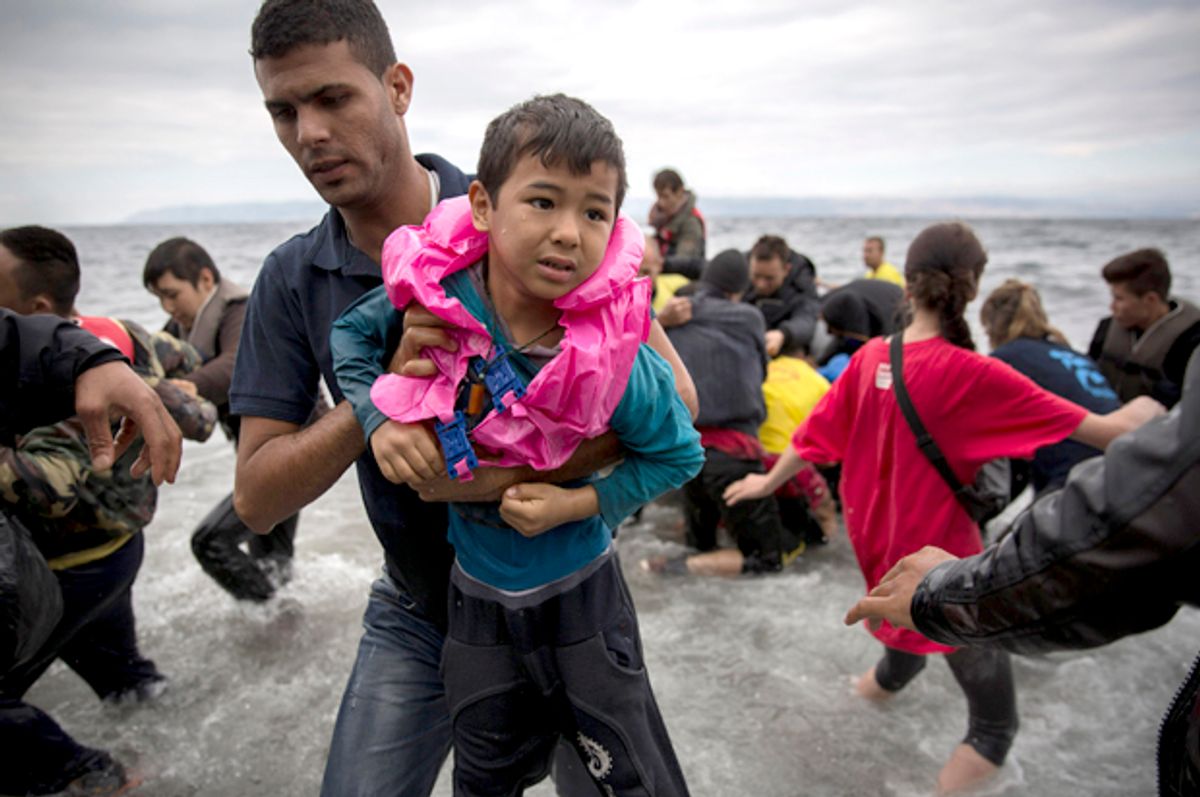International Migrants Day is honored every Dec. 18. This year, the day comes in the midst of the worst refugee crisis since World War II, in a year that is "likely to exceed all previous records for global forced displacement," according to a report by the U.N. refugee agency.
"2015 will be remembered as a year of human suffering and migrant tragedies," said U.N. Secretary-General Ban Ki-moon in a statement marking the day.
"Over the past 12 months, more than 5,000 women, men, and children lost their lives in search of protection and a better life," Ban added. "Tens of thousands more have been exploited and abused by human traffickers. And millions have been made into scapegoats and become the targets of xenophobic policies and alarmist rhetoric."
The report, released by the U.N. High Commissioner for Refugees to coincide with International Migrants Day, found that 2015 "is on track to see worldwide forced displacement exceeding 60 million for the first time." This would mean that one in every 122 people in the world has been forced to flee their home.
In mid-2015, the global refugee total passed the 20 million threshold for the first time since 1992. And, "if you become a refugee today, your chances of going home are lower than at any time in more than 30 years," the report indicates.
"Never has there been a greater need for tolerance, compassion and solidarity with people who have lost everything," said U.N. High Commissioner for Refugees António Guterres.
The report also notes that things are getting worse, not better.
Syria's ongoing civil war , which is approaching its fifth year, and which has been fueled by more than 20 countries, is the largest generator worldwide of refugees and displaced people.
U.S.-backed wars in Iraq, Afghanistan, Yemen, and Libya have also forced millions of people to flee their homes.
Close to a million people have crossed the Mediterranean Sea as refugees and migrants in 2015, in hopes of finding asylum. Most Western countries, excluding Germany, have been largely hostile to the influx of refugees.
Germany expected to take more than 1 million refugees — most of whom are from Syria and Iraq — this year. Lebanon hosts more refugees per capita than any other country in the world, with 209 refugees for each 1,000 inhabitants, or 21 percent of its total population.
The U.S., which has four times the population of Germany, has barely been able to take 10,000 refugees, amid a climate of increasing xenophobia, racism and Islamophobia. Human rights groups have said they are "deeply disturbed" at the "scapegoating of refugees" and the government clampdown. The House passed anti-refugee legislation, and dozens of governors have, without the authority to do so, claimed they will ban refugees. Invoking the Holocaust, 1,000 American rabbis delivered a letter asking Congress to welcome refugees and "not make the same mistake."
The International Federation of Red Cross and Red Crescent Societies also released an International Migrants Day statement warning that "changing border regulations and a growing apathy across Europe are putting the rights and welfare of migrants at risk."
Secretary-General Ban called on world leaders to address the "root causes" of anti-migrant violence, by protecting the labor rights of migrant workers, combating transnational criminal human trafficking networks, and promoting well-regulated migration and mobility.
"We must expand safe channels for regular migration, including for family reunification, labor mobility at all skill levels, greater resettlement opportunities, and education opportunities for children and adults," the U.N. secretary-general said.
Ban urged all of the world's countries to sign and ratify the International Convention on the Protection of the Rights of All Migrant Workers and Members of Their Families. Just one-fourth of U.N. member states have signed the treaty. The U.S. and most European countries have neither signed nor ratified it.

Shares